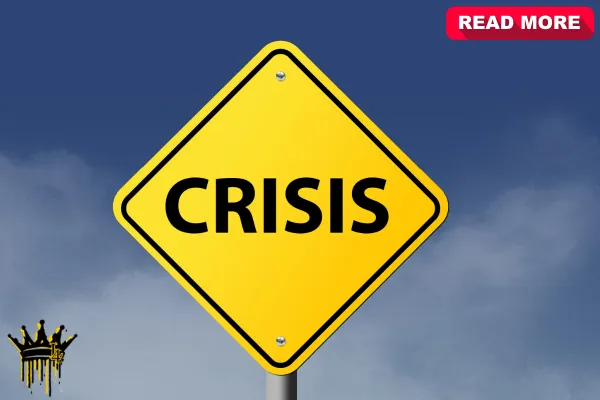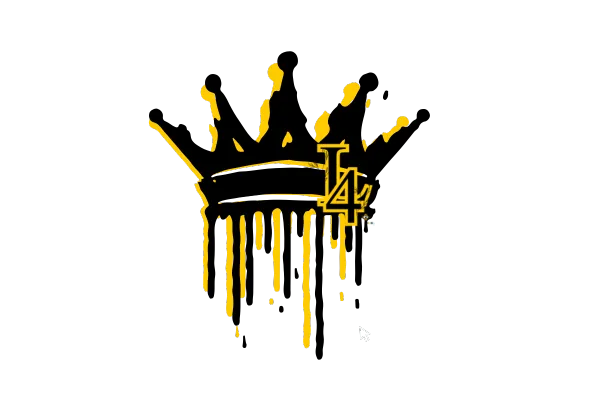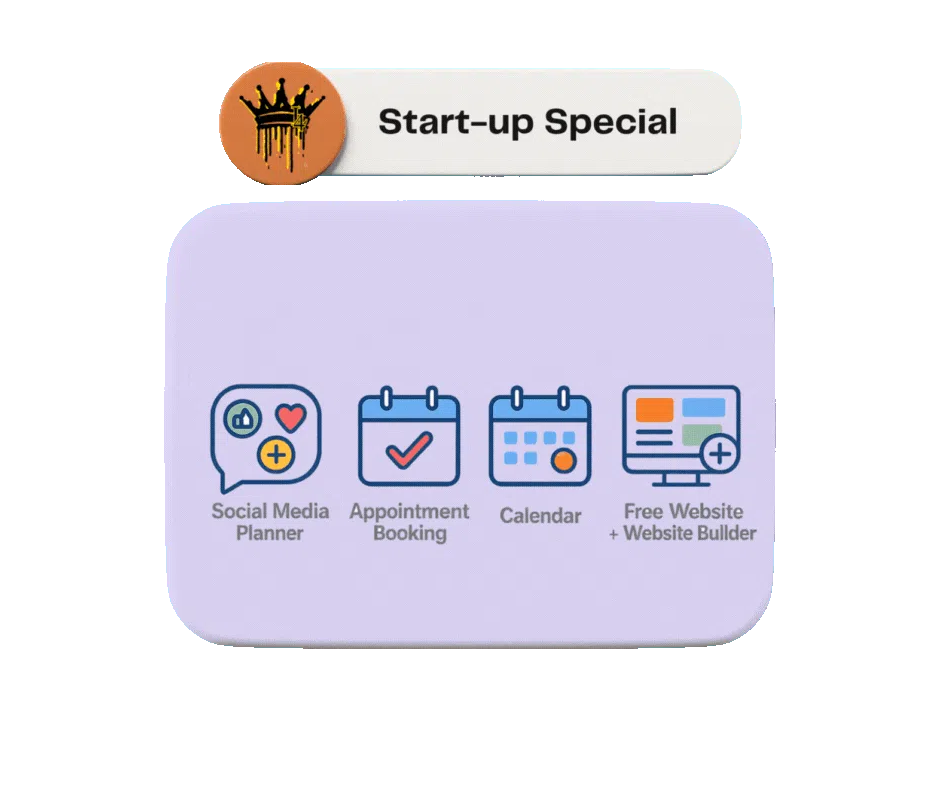
🔥 How I Handle Reputation Disasters: A Real-World Crisis Communication Plan for Local Businesses
One bad review doesn’t have to ruin your reputation—here’s how I help local businesses bounce back fast with a solid reputation management crisis communication plan.
🔥 How I Handle Reputation Disasters: A Real-World Crisis Communication Plan for Local Businesses
🎯 Step 1:Understand the Risk Before It Hits Like a Hammer
🎯 Step 2: Respond Like a Human, Not a Script
🎯 Step 3: Fix It Fast—Privately
🎯 Step 4: Go Public (Again) to Show Accountability
🎯 Step 5: Track the Damage + Improve Internally
🚀 Need Help Crafting Your Crisis Plan?
For Local Businesses, Reputation Is Everything
Why Local Businesses Are Extra Vulnerable to Reputation Shocks
What Counts as a Crisis for Local Businesses?
Step-by-Step: How I Build a Local Crisis Communication Plan
Example: A Local Restaurant’s Crisis Communication Plan in Action
Why Your Crisis Communication Plan Should Be Localized
What Happens When You Don’t Have a Crisis Communication Plan
Crisis Communication Plan Must-Haves for Local Businesses
Quick Stats Every Local Owner Should Know

🎯 Step 1:Understand the Risk Before It Hits Like a Hammer
The Problem:
A bad review pops up on Google. A customer tags your business in a nasty Instagram story. Suddenly, your once-pristine 4.9-star average starts dipping—and calls slow down. This is the exact moment when most local businesses panic and make it worse.
The Strategy:
The first rule in any reputation management local businesses crisis communication plan is don't react emotionally. Step back, breathe, and figure out the scope. Is it one complaint? Or a symptom of something bigger?
The Action:
Here’s how I assess:
Screenshot the review or complaint
Look for patterns in other reviews
Ask my team: what happened?
Check Google, Yelp, Facebook—what’s spreading?
Once I understand the situation, I can move into real reputation management—not just PR patchwork.

🎯 Step 2: Respond Like a Human, Not a Script
The Problem:
Most local businesses sound robotic when replying to complaints. Or worse—they fight back, which only adds fuel.
The Strategy:
In my crisis communication plan, we lead with empathy. Always. I assume the customer is genuinely upset (even if they’re wrong). Because perception is reality in online reputation management.
The Action:
Here’s the exact response I’ve used:
“I’m really sorry your experience didn’t match our standards. We take this seriously. Please DM or email us—we’d love to make it right.”
This does 3 things:
Acknowledges their frustration
Positions my business as accountable
Moves the issue into private conversation
That’s how effective reputation management for local businesses starts—by being human.
🎯 Step 3: Fix It Fast—Privately
The Problem:
You’ve replied publicly, but now the customer’s waiting. If you ghost them, they’ll double down—and it could go viral.
The Strategy:
A core part of my reputation management local businesses crisis communication plan is swift private resolution. Don’t wait. Act.
The Action:
I reach out personally—text, call, DM, email. Whichever way gets a response fastest. My goal:
Hear them out fully
Apologize again
Offer a real solution (refund, redo, freebie, etc.)
If I fix it within 24–48 hours, most people cool off. Many even edit or delete their negative review. That’s local business reputation management in action—not theory.
🎯 Step 4: Go Public (Again) to Show Accountability
The Problem:
You solved the issue—but no one knows that except you and the customer. That’s a missed opportunity.
The Strategy:
In every crisis communication plan, closing the loop publicly shows others you don’t just talk a good game—you follow through. That’s what builds trust.
The Action:
After resolving the issue, I go back to the original post or review and comment:
“Thanks again for chatting with us! We’re glad we could make things right and appreciate your feedback.”
This single move improves public perception dramatically. It shows consistency, which is key to long-term reputation management for local businesses.
🎯 Step 5: Track the Damage + Improve Internally
The Problem:
Most local businesses move on after a crisis without learning from it—which means the same issues happen again.
The Strategy:
Smart reputation management isn’t reactive—it’s proactive. My crisis communication plan includes tracking patterns and fixing root problems.
The Action:
I keep a living Google Sheet to log:
Customer complaints
What went wrong
Who was involved
How we responded
What changed afterward
I also use tools like:
These help me catch trouble early—before a reputation crisis starts.

🚀 Need Help Crafting Your Crisis Plan?
If you're tired of guessing how to respond to reviews or need a custom reputation management strategy for your local business, I can help you build a plan that works—fast.
👉 Reach out now, and let’s get your brand back on track.

For Local Businesses, Reputation Is Everything
As someone who works directly with local businesses every day, I can tell you—reputation management isn’t just a marketing strategy. It’s your survival system. One bad Yelp review, a viral social media post, or a news story gone wrong can shut your doors faster than any competitor.
That’s why every local business needs a bulletproof crisis communication plan. Not just a generic policy—but a real, tactical, ready-to-execute blueprint for when things go sideways.
In this post, I’ll walk you through the exact best practices I use to build a crisis communication plan that helps local businesses not just survive—but thrive in the face of reputation threats.
Why Local Businesses Are Extra Vulnerable to Reputation Shocks
Let’s be real: local businesses have more skin in the game. You’re not a faceless corporation. You’re the shop downtown, the café people talk about, the service provider neighbors rely on. That closeness? It’s both a gift and a risk.
Here’s why a crisis communication plan is especially critical for local businesses:
Bad press spreads faster in tight-knit communities
Local media picks up on conflict quickly
One viral review can derail months of growth
You’re expected to be more responsive, more human, more accountable
If you don’t already have a crisis communication plan, you’re gambling with your livelihood.
What Counts as a Crisis for Local Businesses?
Some business owners wait for a “big problem” to act. That’s a mistake. In my experience, these are common crises for local businesses:
Negative online reviews that accuse you of bias, rudeness, or fraud
Customer injuries or accidents at your location
Employee misconduct caught on video
Backlash from unpopular opinions or social posts
Health code violations or inspection issues
Any one of these requires a fast, coordinated crisis communication plan.
How I Build a Local Crisis Communication Plan
Here’s how I build a crisis communication plan for local businesses that’s practical and ready to deploy:
1. Identify Crisis Types
We start by listing every potential threat that could damage your brand:
Customer service complaints
Operational failures
Legal issues
Community backlash
Each type gets its own mini-crisis communication plan.
2. Assign Roles
Who speaks to the press? Who handles social media? Who monitors reviews?
Your crisis communication plan must name:
A primary spokesperson (often the owner or manager)
A social media manager or agency contact
Legal or compliance advisors
A customer service escalation contact
This avoids chaos and conflicting messages.
3. Draft Messaging Templates
When a crisis hits, you don’t want to “wing it.” I help clients pre-write:
Apologies
Explanations
Action plans
Public updates
All stored in a shared folder and ready to deploy. That’s effective crisis communication planning in action.
4. Set Monitoring Alerts
Using tools like:
Google Alerts
Yelp and TripAdvisor monitoring
Local Facebook group tracking
We track sentiment daily and set triggers to activate the crisis communication plan when needed.
5. Create a Channel Strategy
Your crisis communication plan should include how you’ll communicate across:
Social media
Email newsletters
Local news outlets
In-store signage
Your website homepage
Consistency across these is what keeps trust intact.
Why Your Crisis Communication Plan Should Be Localized
National brands can lean on PR firms and polished statements that speak to everyone—and no one.
Local businesses don’t have that luxury. You live where your customers live. When something goes wrong, your community expects:
Transparency they can trust
Accountability from real people
Language that sounds like home
Fast, human responses—not copy-paste PR
That’s why your crisis communication plan must be tailored to your local audience. It’s not about spin. It’s about trust. About showing up.
Local loyalty is earned in moments of pressure.
A well-crafted, localized crisis plan shows you’re not hiding—you’re listening, responding, and taking action. People want to hear from you, not a generic brand voice. That could mean a personal video apology, a heartfelt Facebook post, or even a town hall meeting—whatever matches your business and audience.
Here’s what a localized crisis response includes:
Clear messaging that reflects your brand’s personality and values
A quick acknowledgment of the issue (don’t go silent)
Direct communication on platforms your customers actually use
Bilingual or culturally-aware content if your area calls for it
Names, faces, and local context—be real, not corporate
Fail to plan, and you fail publicly.
The internet doesn’t wait. Local news spreads faster than ever. If you don’t have a plan in place, someone else controls the narrative—maybe a competitor, maybe a customer with a viral post.
Make it personal. Make it clear. Make it yours.
Because in a crisis, the difference between losing trust and earning respect often comes down to how you respond—and how local that response feels.

Quick Stats Every Local Owner Should Know
45% of consumers say they’d avoid a local business after reading just one negative review.
→ Source: BrightLocal
88% of local searches lead to a store visit or call within 24 hours.
→ Source: Google
Businesses that respond to reviews see 4x more conversions than those that don’t.
→ Source: Womply
These numbers make one thing painfully clear: you need a crisis communication plan in place before you need it.
Why Local Businesses Can’t Afford to Wait
When a crisis hits—whether it’s a bad review, a viral complaint, or a legitimate operational mistake—your response time and tone are everything. Small businesses operate in tight-knit communities. The fallout from a poorly handled situation doesn’t just stay online—it walks through your front door.
That’s where a solid crisis communication plan comes in. It’s not just for big companies anymore. In fact, it’s even more critical for local businesses, where reputation is your most valuable currency.
What Your Plan Should Cover
Your crisis communication plan should cover more than just what to say. It needs to outline:
Who responds and through which channels
What tone fits your brand and community
When to go public and when to wait
Where to post updates (Google, Facebook, Yelp, etc.)
How to follow up and rebuild trust
Tailor it to your size, your voice, and your local market. It’s not about perfection—it’s about preparation.
Reclaim Control Before It’s Too Late
Without a clear crisis communication plan, you leave your brand vulnerable. One ignored review, one misunderstood post, one angry customer—those are the sparks that can burn your reputation fast.
A good plan can turn a negative moment into a reputation win. It shows your community that you're paying attention, you care, and you're ready to make things right.
Last Call: One Bad Moment Shouldn’t Break Your Business
Reputation hits happen. That’s reality. But being unprepared? That’s a choice.
With the right crisis communication plan, your local business won’t just take the hit—you’ll bounce back smarter, faster, and stronger.
You’ve seen how it works. You’ve got the stats. The only thing left is action.
👉 Get a Free Website to Drive Traffic & Boost Visibility at LookHin4.com
Start building your digital presence now—before the next review, post, or headline puts you on the spot.
Need Help With Your Crisis Plan?
I design custom crisis communication strategies for:
Restaurants
Retail stores
Clinics
Salons
Local service providers
From playbooks to real-time response systems, I’ll help you stay ready when it counts.
Let’s protect your brand—before the damage is done.




